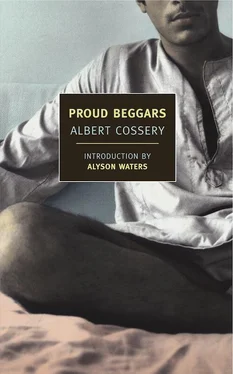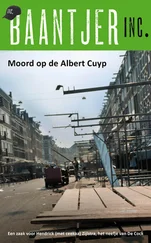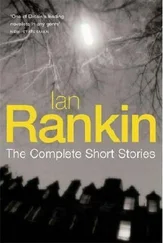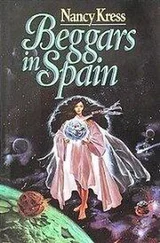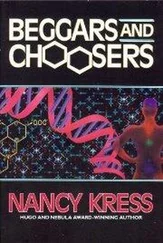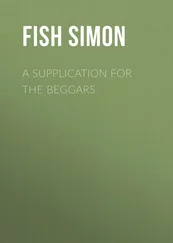This would-be superior attitude was almost fatal. Looking straight ahead, he stepped in a puddle of water, slipped, and nearly fell on the ground. Stunned, his movements ungainly, he took refuge near a shack and inspected his shoes and the mud-spattered hem of his pants. The feeling of shame, of irreparably having lost prestige, made him stand a moment without moving, not daring to lift his head. What a laughable spectacle he must have offered to these wretches! Fury gripped him and he swore in a low voice. Then, panting with rage, he straightened up, expecting to hear jokes and laughter fly. But no, no one laughed. Yet it was worse than if they had made fun of him. Samir’s humiliations, still present in his memory, were nothing in comparison to these gazes fixed on him in eternal dismay as though to tear away his supreme justification, to strip him of the only clothes that made him inviolable. He could, at least, defend himself against Samir’s hatred and sarcasm, but how could he respond to this monstrous indifference, more ferocious than the most implacable hatred? Nothing in their behavior expressed aversion or revolt. They seemed to look on him as a mangy dog or vermin. Why didn’t they throw rocks at him? Nour El Dine waited for a movement, but nothing happened. Still this immobility and this deadly indifference. It was only as he resumed his walk that something astounding took place. Standing in the middle of the alley, a little six-year-old girl with features blurred by dirt, raised the hem of her dress and showed him her sex in a gesture of moving simplicity. Nour El Dine blushed and, for a moment, seemed to totter on his feet, then he turned his head away and escaped as quickly as possible.
He wondered about the meaning of this hallucinatory scene. The young girl’s gesture seemed to belong to a savage, incomprehensible universe. It was a fantastic act that went beyond intelligence, coming straight from the accumulation of rubble and age-old decay. “Cursed breed! Am I condemned to spend my whole life among these pariahs?” As he thought about the role he played in this grotesque drama, a wave of bitterness rose in his throat. What an inept role! What was the government thinking, entrusting him with such a thankless task? What justice could dawn in this trash heap, this field of death and desolation! To look for a criminal — even a first offender — in this gray and sticky mass was an absurdity. He would have had to imprison all of them. Nour El Dine didn’t fool himself; he knew that they were stronger. For years he had learned this from sad experience. Their inalienable misery, their refusal to participate in the destiny of the civilized world, concealed such strength that no earthly power could exhaust it.
He remembered that he was now hurrying to track down a criminal, and he began to laugh. He had a baleful foreboding that this investigation of a young prostitute’s murder would be filled with mishaps. He had muddled it to the extreme by his tendency to imagine wild mysteries behind a simple crime. His desire to unravel an important affair, to do battle with a worthy opponent, prevented him from seeing ordinary reality. Head lowered, he was charging along, as if capturing this imaginary killer, this assassin belonging to a superior race, could give meaning to his life.
He breathed a sigh of relief; he was finally out of that hell. It still wasn’t completely civilization, but, anyway, it was more bearable. He was in a street, a real street with cars and streetcars and people who looked alive. They filled café terraces, sprawled in conceited poses, looking jovial, talking and arguing with fine optimism. They seemed to suspect nothing, as if life were a pleasant thing. Again, Nour El Dine felt bitterness rising in him. Why was he alone doomed to horror? The sight of these people enjoying the leisure of a perpetual holiday made him furiously envious. He begrudged them their indifference, their capacity to disregard the principles of a world whose foundation was sadness and contrition. By what magic had they escaped the common distress?
The answer to this question was childishly simple: these people didn’t give a damn because they had nothing to lose. But Nour El Dine refused to accept this elementary truth. That would be proof of his own anarchism.
He saw a plainclothes policeman seated at a table on a café terrace and went straight to him.
The man stood up.
“Greetings, Excellency!”
He was a man of around forty, wearing a long, worn-out black coat and boots with yellow buttons; his skinny neck was wrapped in a large chestnut shawl whose ends flapped at his sides like a crow’s wings. He was one-eyed, but his one eye was worth several, it sparkled with such murderous malice.
“Well? Have you found him?” asked Nour El Dine.
“I must say it was a tough job. Still, I finally found him. That son of a whore changes residence almost every two hours. He doesn’t have an easy conscience, evidently.”
Nour El Dine grew impatient.
“Where is he now?”
“Number 17 on this street.”
“A hotel? What’s the name?”
“I don’t know; there’s no sign. He’s staying on the second floor, the room facing the stairs.”
“Very well, you may go. I don’t need you anymore.”
“As you wish, sir!”
Nour El Dine left the one-eyed policeman, crossed the street, and slowly followed the sidewalk bordered by decaying odd-numbered buildings. After a few minutes’ walk, he finally stopped before number 17; for a moment, he inspected the dilapidated façade, looked right and left as if he feared being seen going into such a shabby hotel, then crossed the threshold and entered a fetid, somber hallway. No clerk came to meet him; the place seemed long abandoned. Guided more by his instinct than by his visual organs, Nour El Dine came to a stone staircase with worn steps and climbed to the second floor. When he reached it, he glimpsed what looked like a door in the darkness and began to bang on it with his fist.
No one answered his frantic knocking. Nour El Dine strained to listen: nothing moved inside. Without waiting any longer, he turned the doorknob, opened the door, and entered a room whose size and furnishings he couldn’t make out for lack of light. It was still the same darkness, barely attenuated by the feeble daylight seeping through the slats of the closed shutters. Nour El Dine’s first impression was that the room was empty. Little by little his eyes became accustomed to the shadows and he perceived a bed, and in this bed a human form lying under the covers.
“Hey, you! Wake up!”
The form lying under the covers remained inert as a corpse. Nour El Dine grew annoyed and began to think that the man might be dead. He approached the bed and with unspeakable disgust raised the blankets. This operation revealed the naked body of a man, whose skeletal thinness would have terrified the hardest of hearts.
“May Allah preserve us!” murmured Nour El Dine.
The cold he felt at being thus uncovered had more effect on the sleeper than an earthquake, because he woke up, blinked his eyes, yawned, and finally asked, “What’s this?”
“Police!” Nour El Dine yelled, as if he wanted to break all resistance in the sleeper’s mind with this single word.
But the word “police” clearly held no terrors for the bed’s occupant, for he replied with perfect calm, making as if to go back to sleep, “You can search everywhere; there isn’t a speck of hashish in this room.”
“It’s not that,” said Nour El Dine. “Come on, get up, I want to talk to you.”
“Talk to me!” exclaimed Yeghen, now completely awake. “By Allah! Inspector, how have I deserved this honor? How can I be of use to you?”
“I’ve come to talk to you about a murder.”
“A murder, Excellency! What a black day!”
Читать дальше
